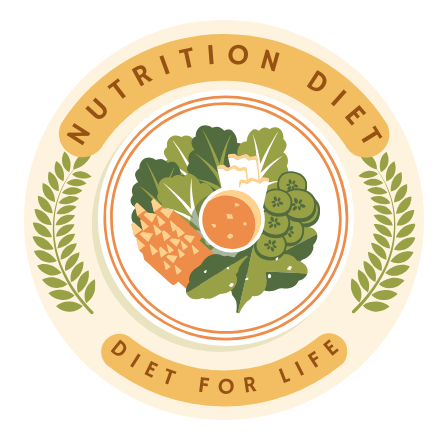For decades, dieting has dominated the conversation around weight loss, health, and self-worth. From calorie counting and low-fat meal plans to cutting carbs, juicing, detoxing, or fasting—virtually every method has had its moment in the spotlight. Diet books become bestsellers, new programs flood the internet, and apps promise to track and fix everything. Yet despite the constant stream of innovation and marketing, the results tell a different story.
The reality is sobering: roughly 95% of people who lose weight on diets regain it within three years, according to numerous long-term studies. Even more concerning, many end up heavier than before they started. Why does this keep happening?
It’s not because people are lazy, unmotivated, or lacking in willpower. Most people who diet are incredibly determined—often willing to follow strict rules, endure hunger, and deprive themselves in the name of health or thinness. The real issue lies in the design of most diets themselves. They are often unsustainable, overly restrictive, and disconnected from the emotional and psychological dimensions of eating.
Diets tell you what to eat, when to eat, and how much to eat—often without ever asking the most important question: Why are you eating in the first place? Hunger isn’t always physical. Sometimes we eat out of boredom, stress, celebration, or habit. Most diets ignore this complex relationship between food and emotion. And because they focus on external rules instead of internal awareness, they rarely lead to lasting change.
Enter mindful eating—a quiet revolution that doesn’t rely on rules or restriction. Instead, it teaches us to tune in. To listen. To reconnect with the body’s natural hunger and fullness signals. To understand the why behind our eating habits. And to approach food not with guilt or judgment, but with curiosity, compassion, and presence.
Unlike dieting, mindful eating isn’t a temporary fix. It’s a sustainable practice rooted in awareness and respect for your own body. Rather than telling you what not to eat, it helps you pay attention to how food makes you feel—physically, emotionally, mentally. You begin to notice what satisfies you, what nourishes you, and what triggers you. You eat more slowly, more intentionally, and with far greater satisfaction.
For many people, the shift is transformative. Not just because it can lead to healthier choices or weight stabilization, but because it heals the relationship with food entirely. It offers a way out of the exhausting cycle of dieting, bingeing, guilt, and shame. It replaces control with trust. It swaps anxiety for presence. And in doing so, it returns eating to what it was always meant to be: a joyful, nourishing, and human experience.
Mindful eating may not come with flashy promises or dramatic headlines—but for most people, it works better than dieting. Not because it’s stricter or more advanced, but because it’s more human.
Let’s explore why.
The Dieting Dilemma
Dieting creates an adversarial relationship with food. Food becomes a threat, something to control or restrict. This often leads to:
- Yo-yo dieting: Repeated cycles of weight loss and gain.
- Disordered eating patterns: Bingeing, purging, guilt.
- Metabolic slowdowns: The body conserves energy, thinking its starving.
- Mental fatigue: Constantly saying “no” wears down willpower.
Many diets are unsustainable and disconnected from daily life. They often ignore emotions, habits, and individual differences. That’s where mindful eating begins to shine.
What Is Mindful Eating?
Mindful eating is the practice of being fully present while eating. That means:
- Eating slowly and without distraction
- Listening to hunger and fullness cues
- Noticing flavors, textures, and satisfaction
- Acknowledging emotional triggers
- Eating with intention, not impulse
It draws from Buddhist mindfulness principles, especially non-judgmental awareness of the present moment.
The Psychology of Eating
Why do we eat when we’re not hungry?
- Stress eating
- Boredom
- Social pressure
- Reward systems
- Just anxious?
How Mindful Eating Changes the Brain
Studies using fMRI and brain scans show that mindfulness practices can:
- Reduce activity in the amygdala (emotional center).
- Enhance regulation via the prefrontal cortex.
- Rewire dopamine pathways tied to reward eating.
The result? Less emotional eating, fewer cravings, and more control.
Weight Loss without Willpower
Unlike dieting, mindful eating doesn’t rely on white-knuckle willpower. Instead, it works through:
- Awareness over restriction
- Self-trust over rules
- Satisfaction over deprivation
You learn to eat when you’re hungry, stop when you’re satisfied, and make nutritious choices because they feel good—not because you “have to.”
The Science behind Mindful Eating
Research supports the benefits:
- A 2014 meta-analysis in Obesity Reviews showed that mindful eating led to significant reductions in binge eating and emotional eating.
- A 2017 study from Appetite journal showed improved metabolic markers even without weight loss.
- Harvard Health reports better insulin regulation, digestion, and satiety.
Case Studies: Lives Transformed
- Maria, 42: After 20 years of dieting, she adopted mindful eating and lost 35 pounds—but more importantly, she stopped hating food.
- James, 31: A binge eater who found peace by using mindfulness cues instead of food as comfort.
- Praia, 27: Recovered from disordered eating using mindful practices and yoga.
Comparing Mindful Eating to Popular Diets
| Diet | Mindful Eating |
| Kato | Restrictive; can lead to cravings |
| Pale | Often rigid and guilt-inducing |
| Intermittent Fasting | Useful for some, but can trigger binging |
| Mindful Eating | Flexible, forgiving, sustainable |
Mindful eating isn’t against any diet. In fact, it can enhance any nutritional approach by bringing in awareness.
The Role of Self-Compassion
Self-compassion is the missing ingredient in most diets. When you “fail” on a diet, you spiral into shame. With mindful eating, a slip becomes a moment of reflection—not judgment.
Mindful Eating for Emotional Eating
Emotions often drive overeating. Mindful eating teaches us to:
- Pause and name the emotion
- Sit with discomfort instead of numbing it
- Choose food consciously
Over time, emotions lose their grip on our forks.
How to Start Practicing Mindful Eating
Start small:
- Turn off distractions (TV, phone).
- Take a few deep breaths before eating.
- Chew slowly and thoroughly.
- Check in mid-meal: Are you still hungry?
- Note your emotions before, during, and after.
Common Myths and Misconceptions
- “It’s just eating slowly.” → No, it’s eating with intention.
- “It doesn’t help with weight loss.” → Studies say otherwise.
- “It’s too ‘woo-woo.’” → it’s backed by cognitive science.
- “It’s not structured.” → it’s flexible by design.
Challenges and How to Overcome Them
- Busy schedules: Even a 5-minute meal can be mindful.
- Emotional eating: Practice noticing, not fixing.
- Eating out: Focus on taste and fullness, not rules.
Long-Term Success and Sustainability
Mindful eating works because it’s not a quick fix. It’s a lifelong relationship with food. Over months and years, people:
- Gain confidence
- Reduce disordered eating
- Improve metabolic health
- Find peace around food
Mindful Eating in Children and Teens
Teaching mindful eating early helps kids:
- Develop healthy body image
- Avoid food guilt
- Handle emotional eating
Simple practices: family meals, gratitude, food exploration.
Cultural Approaches and Wisdom Traditions
Cultures like Japan, India, and the Mediterranean have long practiced mindful eating through:
- Slow meals
- Respect for ingredients
- Rituals and blessings
- Eating communally
Western mindfulness reawakens ancient traditions.
A Day in the Life of a Mindful Eater
- Morning: Sips tea slowly, notices flavors.
- Lunch: Eats away from desk, listens to fullness.
- Snack: Chooses fruit not from guilt, but desire.
- Dinner: Appreciates colors and textures. No rush.
No obsession. Just presence.
Expert Opinions: What Psychologists, Doctors, and Nutritionists Say
- Dr. Jan Chosen Bays: “Mindful eating helps us discover why, when, what, and how we eat.”
- Dr. Susan Albers: “It’s the ultimate antidote to emotional eating.”
- Harvard Nutritionists: “Mindfulness builds sustainable habits—not temporary fixes.”
Future of Eating: Tech, AI, and Mindfulness
Apps now guide mindful eating, from Headspace to Eat Right Now. The future may involve:
- AI analyzing eating speed and patterns
- Smart forks that track bites
- Virtual coaches for food awareness
Technology is catching up with wisdom.
Conclusion
Mindful eating isn’t just another wellness trend or fleeting fad—it’s a profound return to something ancient, intuitive, and deeply human. It’s about relearning how to eat the way we were always meant to: with presence, with gratitude, with curiosity, and with trust in our own bodies. In contrast to the rigid rules of dieting, mindful eating doesn’t demand restriction—it invites reflection. It doesn’t punish—it empowers.
Diets teach us to fear food, to categorize it as good or bad, to count and measure and calculate every bite. They teach us that our bodies are problems to be solved, not partners to be listened to. But food is not the enemy. Hunger is not a flaw. And eating should not be a source of shame.
Mindful eating offers a different path. A quieter one. It’s not about controlling food—it’s about connecting with it. It invites us to pause before we eat, to check in with our hunger—not just physical, but emotional, psychological, even spiritual. It encourages us to notice how food tastes, how it smells, how it feels in our mouths and how it makes us feel afterward—not with guilt, but with gentle awareness.
Over time, this practice builds something diets never do: trust. Trust in your hunger cues. Trust in your ability to stop when you’re satisfied. Trust that your body knows what it needs—even if the noise of the world has made it hard to hear.
And the world is noisy. There are endless messages telling us what we should eat, how we should look, and what our worth is tied to. Diet culture thrives on shame, on the illusion of perfection, on promises of transformation through deprivation. It drowns out our inner wisdom.
But mindful eating whispers something different. Something softer. Something kinder.
“You already know how to eat. You just forgot to listen.”
That single sentence holds immense power. It reminds us that our relationship with food doesn’t need fixing—it needs remembering. When we slow down, when we silence the critic and listen to the body, we discover that we’ve had the answers all along.
Mindful eating doesn’t promise rapid weight loss or overnight change. What it offers is far more valuable: peace. A chance to enjoy food again. To be in partnership with our bodies, not war. To step off the rollercoaster of dieting and into a relationship with eating that is sustainable, nurturing, and free.
Because eating should be an act of nourishment—not just for the body, but for the soul.
SOURCES
Bays, Jan Chosen (2009) – Mindful Eating: A Guide to Rediscovering a Healthy and Joyful Relationship with Food.
Albers, Susan (2012) – Eating Mindfully: How to End Mindless Eating and Enjoy a Balanced Relationship with Food.
Kris teller, Jean & Wolver, Ruth (2010) – Mindfulness-Based Eating Awareness Training (MB-EAT) for treating binge eating disorder: The conceptual foundation. Eating Disorders Journal.
Harvard Health Publishing (2020) – Mindful Eating: Savor the flavor, avoid the guilt.
O’Reilly, G.A. et al. (2014) – Mindfulness-based interventions for obesity-related eating behaviors: a literature review. Obesity Reviews.
Mason, A.E. et al. (2016) – Reducing emotional eating through mindfulness training: the role of practice. Appetite Journal.
Forman, Evan M. et al. (2013) – Mindfulness and acceptance-based behavioral treatment for obesity: a pilot study. Mindfulness Journal.
Tapper, Katy (2017) – Mindfulness and eating behavior: An overview. Appetite.
Jordan, C.H. et al. (2014) – Mindful eating: Trait and state mindfulness predict healthier eating behavior. Personality and Individual Differences.
Dalen, J. et al. (2010) – Pilot study: Mindful Eating and Living (MEAL): Weight, eating behavior, and psychological outcomes associated with a mindfulness-based intervention for people with obesity. Complementary Therapies in Medicine.
Brown, K.W. & Ryan, R.M. (2003) – The benefits of being present: Mindfulness and its role in psychological well-being. Journal of Personality and Social Psychology.
Kabat-Zinn, Jon (1990) – Full Catastrophe Living: Using the Wisdom of Your Body and Mind to Face Stress, Pain, and Illness.
Levin, Mark E. et al. (2017) – Mindfulness-based interventions for weight loss and binge eating: A systematic review. Current Obesity Reports.
Lillis, J. et al. (2009) – A randomized controlled trial of acceptance and commitment therapy for weight-related stigma. Eating Disorders Journal.
Daubenmier, J. et al. (2016) – Mindfulness intervention for stress eating to reduce cortisol and abdominal fat among overweight and obese women: A randomized controlled trial. Obesity.
Craighead, L.W. & Allen, H.N. (1995) – Appetite awareness training in the treatment of binge eating disorder. Cognitive and Behavioral Practice.
National Institute for Health and Care Excellence (NICE, 2022) – Obesity: identification, assessment and management.
Barnes, R.D. & Tantleff-Dunn, and S. (2010) – Food for thought: Examining the relationship between food thought suppression and weight-related outcomes. Eating Behaviors.
Wans ink, Brian (2010) – Mindless Eating: Why We Eat More Than We Think.
Carrier, K. et al. (2018) – A systematic review of randomized controlled trials of mindfulness-based interventions for weight loss and binge eating. Mindfulness Journal.
HISTORY
Current Version
June 14, 2025
Written By
ASIFA


